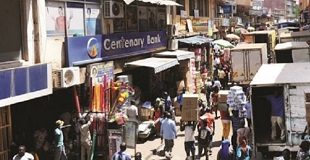
How good institutions become dysfunctional in heterogenous countries with deep interethnic divisions
THE LAST WORD | Andrew M. Mwenda | So, we begin from where we stopped last week with lessons from my former lecturer at the University of London, Mushtaq Khan. Studying South Korea and Pakistan, he found that what makes successful nations is not just the form of government or the quality of political institutions or even the public policies. He says it is the “political settlement” the balance of power between the state (acting as patron) and the different social forces acting as its clients.
According to Khan, in the 1960s, Pakistan and South Korea had the same system of government an all-powerful military ruler who had centralised power in the presidency and personalised it in his hands: Field Marshal Mohammed Ayub Khan in Pakistan and Gen. Park Chung Hee in South Korea. Both governments pursued a common industrial policy, a selective allocation of state rents such as tax exemptions, government subsidies and access to cheap credit to a small select group of industrial houses. In South Korea, this led to successful industrialisation. In Pakistan, it led to a military coup, a civil war and the breakup of the country. Why?
South Korea, he argued, was a homogenous society with a long history of both statehood and nationhood. Both formal power and effective power were centralised in the state. Whenever the state pursued a given policy, it could mount relatively unified action without generating what he called “secondary contestations” strong enough to derail it. It is this that produced highly concentrated set of industrial houses, known as the “chaebol” Daewoo, Hyundai, Kia, Sam Sung, etc. It is these few but large family based industrial conglomerates that underpinned South Korea’s industrial success.
Pakistan is a heterogenous state riven with multitudes of ethnic and religious factions. It lacked a long history of statehood and nationhood. While formal power could be centralised, (as Ayub Khan did) effective power remained dispersed among diffuse fragments of society. Any policy that favoured one set of interests but neglected others could generate very powerful secondary contestations. In such cases, those excluded mounted strong resistance to their exclusion and derailed the state.
For Pakistan, therefore, the best industrial policy would have been an inclusive one, akin to that pursued by Taiwan. On that Island nation, the ruling party, the KMT, supported a large and diverse group of small industrial houses. This way, it was able to ensure that no major group is excluded from state rents. The lesson? It is not political institutions and public policies (alone) that produce successful and sustained economic transformation. Rather it is their interaction with a country’s social dynamics. What is good for the goose may not always be good for the gander.
For Mushtaq Khan, success comes from a strong state relative to society. Such a state is able to impose its will on society without generating secondary contestations capable of derailing it. This view finds support in the work of scholars such as Alice Amsden, Robert Wade, Peter Evans, Joel Migdal among others. They argue that East Asian countries were successful because the state was strong relative to society and could thus impose performance standards on the recipients of its rents. Evans specifically locates the failure of India and Brazil to transform on the scale of Taiwan and South Korea to the weaknesses of the state relative to society.
However, David Kang, in his book Crony Capitalism: Corruption and Development and the Philippines makes an entirely different argument. For him, a strong state is very likely to cannibalise the private sector. This, he argues, was the case with the Philippines under Ferdinand Marcos. Kang says that South Korea succeeded because the state and the business community found themselves in such a state that they were “mutual hostages” their power equally balanced and symbiotic. The success and survival of the state depended to a big degree on the cooperation of the private sector and vice versa. If either side sought to harm the other, both would lose therefore the better to cooperate.
I have a suspicion that even this argument of mutual hostages or mutual dependence works only in some cases. I made this argument in a study I did for the World Bank on the political economy of Uganda’s reforms. I argued that in the late 1980s and early 1990s, Africa was a basket case. Most countries on the continent had suffered prolonged economic decline in spite of but also because of foreign assistance, both technical and financial. There was aid fatigue. Many people in the West were tired of aid because it was not producing the intended results. Powerful voices emerged asking for an end to aid. However, the international donor community, seeking to justify and perpetuate itself, was hungry for a success story in Africa.
Then comes President Yoweri Museveni and his NRM. They embraced IMF and World Bank policies and implemented them as their own. The economy of Uganda began to grow. Museveni needed the donors for money to kick-start the economy and thereby consolidate his political position. The donors needed someone who understood and appreciated their ideas and implemented them. But the two sides had disagreements as well, especially on human rights, democracy and Museveni’s pursuit of a military solution to the war in the north. They remained together in spite of the many tensions in large part because they were mutual hostages.
But I do not find the argument of mutual hostages in the development of Singapore or Hong Kong or China today. What seems much clear to me is that development is a very complex process that involves the interaction of many variables at different times and in different places in ways that we really do not (and may never) fully understand. Every country, based on its culture and politics, geography and history, resource endowments and political threats (or lack of them), policies and institutions, etc. will develop or fail because of the interactions of many variables.
For instance, the USA developed on the back of private enterprise. But this could have succeeded because of the specific configuration of power in that country. On the other hand, China has demonstrated that a country can industrialise and become prosperous while relying heavily on state control of the economy. Many of the conditions we associate with growth such as democracy, clean government, rule of law, etc. are missing in China. To focus only on institutions is misleading and that is the fundamental weakness of Why Nations Fail by James Robinson and Daron Acemoglu.
*****

amwenda@independent.co.ug
 The Independent Uganda: You get the Truth we Pay the Price
The Independent Uganda: You get the Truth we Pay the Price



Your Lecturer Andrew was engaged in lazy thinking;he should have asked more probing questions like;
1.Why do nations that share the same geographical space have similar problems like;Caribbean states of Jamaica,Haiti.
2.Why Latin American states like Colombia,Cuba,Venezuela face the same social,political and economic challenges?where they born to suffer together?
3.Why when states begin to develop, they develop as a block for example,in East and Southern Africa;Uganda,Kenya,TZ,Rwanda,Zambia,Nambia,Bostwana have almost the same GDP.
4.Why States like Ethiopia,UAE,Qatar,Israel are fairly developed yet their immediate neighbors are failed states?
5.Why most failed states are endowed with rich natural resources and no ones gives them ideas on how to get out of poverty?Incase they need ideas from the 1st world ,they have to pay for consultancy .
6.Why nations that have invested in ICT,machinery,banking sectors are more wealthy?
7.The role of citizens IQ in a nations’s development.Just read about the Industrial revolution and how the use of steam energy changed the whole machinery sector in the world.
8.Why all the leaders that have ruled for long have instead developed their nations ;look at M7 and Uganda now,where is Sudan without Bashir?where is Libya without Gadafi,where would Kenya be without Moi?
9.For Africa; why it has proven that the more the whites,Arabs and Indians lived in a country,the more developed a country became look at Kenya,TZ ,South Africa today.Uganda lost it when the Indians were expelled.
10.Why there is always that scape goat of the first world back stabbing nations that have natural resources look at the Diamond story of Serleone and Congo.
11.Why the first world feels more comfortable bringing order to the third world yet less interested in their economic development?
12. How can the whole world be more interested in our men’s butts and even threaten trade cuts because of the recently passed gay bill in Uganda?
13.Why there is disparity between rich nations and their former colonies for example; Britain and the nations in the Caribbean islands,Niger,Chad,Congo and France